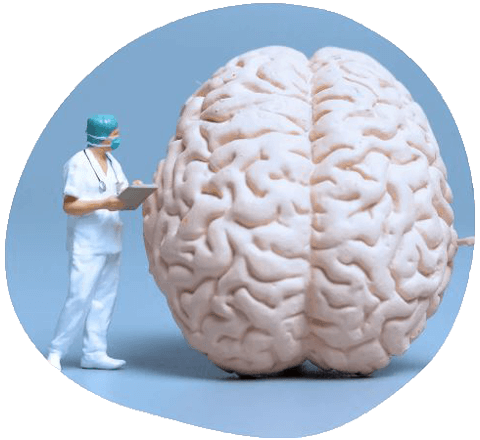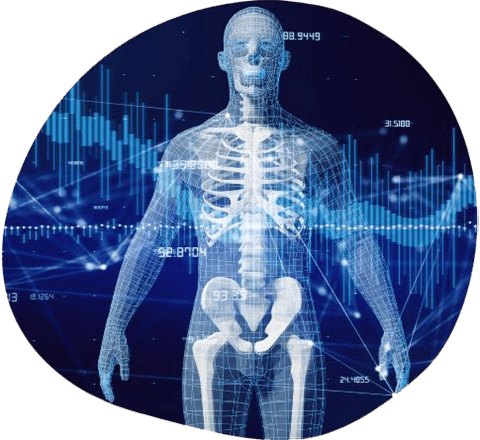cheer me on
to stay away from
cocaine?

How many people use cocaine?
Among people aged 12 or older in 2021, 1.7% (or about 4.8 million people) reported using cocaine at least once in the past 12 months (2021 DT 1.1) and 1.4 million of them are addicted to the substance.
Source: 2021 National Survey on Drug Use and Health*
How many young students use cocaine?
In 2022, an estimated 0.5% of 8th graders, 0.3% of 10th graders, and 1.5% of 12th graders reported using cocaine in the past 12 months.
Source: 2022 Monitoring the Future Survey
How many people die from overdoses involving cocaine?
In 2021, approximately 24,486 people died from an overdose involving cocaine. Death rates from cocaine are climbing incredibly fast—increasing 54% between 2019 and 2021, from even lower rates back in 2017 (nearly 14,000) and 2015 (6,784).
Source: CDC WONDER Database, National Institute of Health “Drug Overdose Death Rates”
What are some short-term effects of cocaine?
Cocaine’s effects appear almost immediately after a single dose and disappear within a few minutes to an hour. Small amounts of cocaine usually make the user feel euphoric, energetic, talkative, mentally alert, and hypersensitive to sight, sound, and touch. The drug can also temporarily decrease the need for food and sleep.14 Some users find that cocaine helps them perform simple physical and intellectual tasks more quickly, although others experience the opposite effect.
The duration of cocaine’s euphoric effects depend upon the route of administration. The faster the drug is absorbed, the more intense the resulting high, but also the shorter its duration. Snorting cocaine produces a relatively slow onset of the high, but it may last from 15 to 30 minutes. In contrast, the high from smoking is more immediate but may last only 5 to 10 minutes.15
Short-term physiological effects of cocaine use include constricted blood vessels; dilated pupils; and increased body temperature, heart rate, and blood pressure.16 Large amounts of cocaine may intensify the user’s high but can also lead to bizarre, erratic, and violent behavior. Some cocaine users report feelings of restlessness, irritability, anxiety, panic, and paranoia.2 Users may also experience tremors, vertigo, and muscle twitches.2
Severe medical complications can occur with cocaine use. Some of the most frequent are cardiovascular effects, including disturbances in heart rhythm and heart attacks; neurological effects, including headaches, seizures, strokes, and coma; and gastrointestinal complications, including abdominal pain and nausea.7 In rare instances, sudden death can occur on the first use of cocaine or unexpectedly thereafter. Cocaine-related deaths are often a result of cardiac arrest or seizures2 (see “National Overdose Deaths: Number of Deaths from Cocaine“). Many cocaine users also use alcohol, and this combination can be particularly dangerous. The two substances react to produce cocaethylene, which may potentiate the toxic effects of cocaine and alcohol on the heart.17 The combination of cocaine and heroin is also very dangerous. Users combine these drugs because the stimulating effects of cocaine are offset by the sedating effects of heroin; however, this can lead to taking a high dose of heroin without initially realizing it. Because cocaine’s effects wear off sooner, this can lead to a heroin overdose, in which the user’s respiration dangerously slows down or stops, possibly fatally.
What are some long-term effects of cocaine use?
With repeated exposure to cocaine, the brain starts to adapt so that the reward pathway becomes less sensitive to natural reinforcers10,18 (see “What Are Some Ways that Cocaine Changes the Brain?“). At the same time, circuits involved in stress become increasingly sensitive, leading to increased displeasure and negative moods when not taking the drug, which are signs of withdrawal. These combined effects make the user more likely to focus on seeking the drug instead of relationships, food, or other natural rewards.
With regular use, tolerance may develop so that higher doses, more frequent use of cocaine, or both are needed to produce the same level of pleasure and relief from withdrawal experienced initially.10,18 At the same time, users can also develop sensitization, in which less cocaine is needed to produce anxiety, convulsions, or other toxic effects.7 Tolerance to cocaine reward and sensitization to cocaine toxicity can increase the risk of overdose in a regular user.
Users take cocaine in binges, in which cocaine is used repeatedly and at increasingly higher doses. This can lead to increased irritability, restlessness, panic attacks, paranoia, and even a full-blown psychosis, in which the individual loses touch with reality and experiences auditory hallucinations.2 With increasing doses or higher frequency of use, the risk of adverse psychological or physiological effects increases.2,7 Animal research suggests that binging on cocaine during adolescence enhances sensitivity to the rewarding effects of cocaine and MDMA (Ecstasy or Molly).19 Thus, binge use of cocaine during adolescence may further increase vulnerability to continued use of the drug among some people.
Specific routes of cocaine administration can produce their own adverse effects. Regularly snorting cocaine can lead to loss of sense of smell, nosebleeds, problems with swallowing, hoarseness, and an overall irritation of the nasal septum leading to a chronically inflamed, runny nose.15 Smoking crack cocaine damages the lungs and can worsen asthma.2,3 People who inject cocaine have puncture marks called tracks, most commonly in their forearms,7 and they are at risk of contracting infectious diseases like HIV and hepatitis C (see “Why Are Cocaine Users at Risk for Contracting HIV and Hepatitis?“). They also may experience allergic reactions, either to the drug itself or to additives in cocaine, which in severe cases can result in death.
Cocaine damages many other organs in the body. It reduces blood flow in the gastrointestinal tract, which can lead to tears and ulcerations.7 Many chronic cocaine users lose their appetite and experience significant weight loss and malnourishment. Cocaine has significant and well-recognized toxic effects on the heart and cardiovascular system.7,16,20 Chest pain that feels like a heart attack is common and sends many cocaine users to the emergency room.7,20 Cocaine use is linked with increased risk of stroke,16 as well as inflammation of the heart muscle, deterioration of the ability of the heart to contract, and aortic ruptures.20
In addition to the increased risk for stroke and seizures, other neurological problems can occur with long-term cocaine use.7,18 There have been reports of intracerebral hemorrhage, or bleeding within the brain, and balloon-like bulges in the walls of cerebral blood vessels.7,18 Movement disorders, including Parkinson’s disease, may also occur after many years of cocaine use.7 Generally, studies suggest that a wide range of cognitive functions are impaired with long-term cocaine use—such as sustaining attention, impulse inhibition, memory, making decisions involving rewards or punishments, and performing motor tasks.14
Former cocaine users are at high risk for relapse, even following long periods of abstinence. Research indicates that during periods of abstinence, the memory of the cocaine experience or exposure to cues associated with drug use can trigger strong cravings, which can lead to relapse.21
Is cocaine addictive?
Yes, cocaine use can lead to addiction. Every repeated use increases addiction likelihood. Addiction is a devastating brain disease in which people can’t stop using drugs even when they really want to and even after it causes terrible consequences to their health and other parts of their lives. Because a cocaine high usually doesn’t last very long, people take this drug again and again to try to keep feeling good.
Once addicted, people who are trying to quit taking cocaine might experience withdrawal symptoms, including:
The right treatment, however, can help a person who is addicted control cravings and stop using cocaine. Source: National Institute on Drug Abuse; National Institutes of Health; U.S. Department of Health and Human Services

All drugs change the way the brain works by changing the way nerve cells communicate. Nerve cells, called neurons, send messages to each other by releasing chemicals called neurotransmitters. These neurotransmitters attach to molecules on neurons called receptors. (Learn more about how neurotransmitters work.) Drugs affect this signaling process.
There are many neurotransmitters, but dopamine is the main one that makes people feel good when they do something they enjoy, like eating a piece of chocolate cake or playing a video game. Normally, dopamine gets recycled back into the cell that released it, thus shutting off the signal. Stimulants like cocaine prevent the dopamine from being recycled, causing a buildup of the neurotransmitter in the brain. It is this flood of dopamine that reinforces taking cocaine, “training” the brain to repeat the behavior. The drug can cause a feeling of intense pleasure and increased energy.
With repeated use, stimulants like cocaine can disrupt how the brain’s dopamine system works, reducing a person’s ability to feel pleasure from normal, everyday activities. People will often develop tolerance, which means they must take more of the drug to get the desired effect. If a person becomes addicted, they might take the drug just to feel “normal.”
After the “high” of the cocaine wears off, many people experience a “crash” and feel tired or sad for days. They also experience a strong craving to take cocaine again to try to feel better. Because a cocaine high usually doesn’t last very long, people take this drug again and again to try to keep feeling good.
Use of cocaine, like other drugs of abuse, induces long-term changes in the brain.
Research suggests that cocaine elevates stress hormones, inducing neuroadaptations that further increase sensitivity to the drug and cues associated with it.11
Chronic cocaine exposure affects many other areas of the brain too. For example, animal research indicates that cocaine diminishes functioning in the orbitofrontal cortex (OFC), which appears to underlie the poor decision-making, inability to adapt to negative consequences of drug use, and lack of self-insight shown by people addicted to cocaine.12
Source: National Institute on Drug Abuse; National Institutes of Health; U.S. Department of Health and Human Services

Cocaine is a stimulant so it gives the body a feeling of stimulation and alertness, which can be both pleasurable and harmful.
Cocaine’s short-term effects appear quickly and disappear within a few minutes to an hour. How long and intense the effects are depends on the method of use. Here are some of the short-term ways cocaine affects the body:
The long-term effects of cocaine on the body depend, in part, on the method of use. They include the following:
Research indicates that cocaine impairs immune cell function,24 promotes replication of the HIV virus, and potentiates the damaging effects of HIV on different types of cells in the brain and spinal cord, resulting in further damage.23 Studies also suggest that cocaine use accelerates the development of NeuroAIDS, neurological conditions associated with HIV infection. Symptoms of NeuroAIDS include memory loss, movement problems, and vision impairment.23
Infection with HIV increases risk for co-infection with HCV, a virus that affects the liver.24 Liver complications are very common, with many co-infected individuals dying of chronic liver disease and cancer.22
Source: National Institute on Drug Abuse; National Institutes of Health; U.S. Department of Health and Human Services
There’s much to see here. So, take your time, read these articles, and learn what’s happening today with cocaine — also known as coke, the big C, snow, crack, blow, rail, candy or rock candy.

news.google.com
Cocaine, Crack, Coke, Big C, Blow, Snow
RECOVERY, ADDICTION REHAB, SPIRITUAL HELP
We desire to meet the physical, spiritual, mental, and emotional needs of each individual.
Our New Day Recovery Ministry for men and women features:
Visit: www.pgm.org/what-we-do/addiction-recovery/
Email: jonest@pgm.org – Call: 312-492-9410
SUICIDE, INTERVENTION, IMMEDIATE CRISIS
GENERAL EDUCATION, PREVENTION, OR STEPPING TOWARDS FREEDOM
Source: National Institute on Drug Abuse; National Institutes of Health; U.S. Department of Health and Human Services